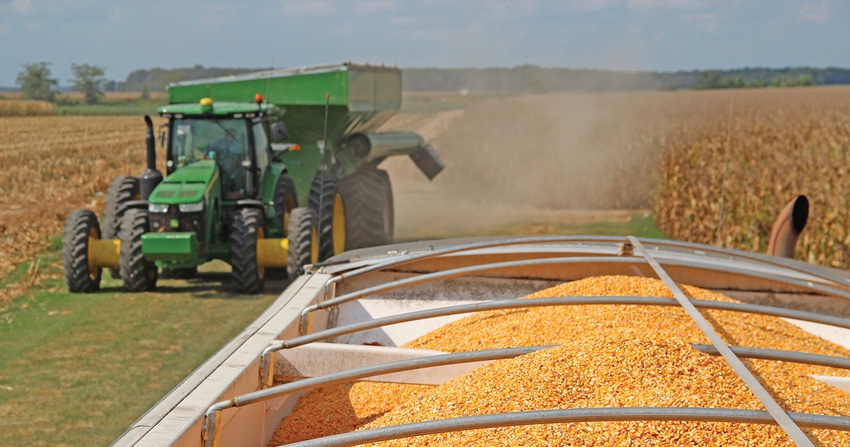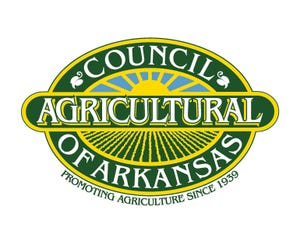
The Agricultural Council of Arkansas is a membership association composed of farmers, landowners and agriculture related businesses that serves to manage issues confronting the ag industry. The organization works to tell the story and advocate on behalf of Arkansas' agricultural community.
Delta Farm Press recently spoke with Andrew Grobmyer, executive vice president & executive director of the Agricultural Council of Arkansas to discuss what issues his organization is currently working on to benefit Arkansas producers.
Delta Farm Press: What are the top issues you are working on or following in Arkansas?
ACA: Right now, it seems like the spigot of issues is running wide open. Choosing where to start or what is most important is very difficult.
 Most recently, we’ve been active in following the impact of the census data on congressional and state legislative maps. Arkansas experienced significant population changes over the last 10 years with significant population declines in rural areas and substantial increases in population in suburban and urban centers.
Most recently, we’ve been active in following the impact of the census data on congressional and state legislative maps. Arkansas experienced significant population changes over the last 10 years with significant population declines in rural areas and substantial increases in population in suburban and urban centers.
The effect of these population trends is likely to provide less direct representation for rural communities and agricultural interests.
In a related matter, we are closely following the developments of what will be the 2022 election cycle in Arkansas. It will be a pivotal election for the state and for agriculture.
State constitutional offices, including governor, lieutenant governor, and attorney general will be open races due to term limits. Our members of congress will all be in re-election cycles with new map boundaries. And, our senior senator, John Boozman, who is vice chairman of the U.S. Senate Agriculture Committee, is up for re-election.
We are particularly interested in seeing Boozman and Crawford re-elected as they would be principal players in drafting the next farm bill, which is scheduled for reauthorization in 2023.
So, 2022 will be a huge election and campaign cycle for Arkansas. We hope we can emerge from it in a strong position both in Arkansas and in Washington, D.C.
DFP: What other policy issues are you working on?
ACA: At the federal level, we are working on many environmental issues, climate change, WOTUS, crop protection products and carbon markets.
We are also gearing up for next the farm bill. We are doing a top-down review of current law and looking at what works and what could be improved.
 Andrew Grobmyer, executive vice president & executive director of the Agricultural Council of Arkansas. (Agricultural Council of Arkansas)
Andrew Grobmyer, executive vice president & executive director of the Agricultural Council of Arkansas. (Agricultural Council of Arkansas)
Combating bad tax policy remains a constant whack-a-mole for us and the entire ag industry. We need to maintain a tax policy that supports these operations and sustains a safe, abundant, and affordable food supply.
At the state level, it is helping on the use of American Rescue Plan funds and other federal and state funds for things like broadband in rural areas, drainage and water systems, and other critical infrastructure needs of the industry, including ag research and extension.
We finished a legislative session this year that included some positive policy outcomes, including a substantial enhancement to the Water Conservation & Development Tax Credits at the Ag Department’s Natural Resources Division. These incentives were enhanced to attract on-farm investment in land improvements like land-leveling, surface water reservoirs, tailwater systems, and irrigation monitoring and control technologies.
While we did not get all our priorities across the goal-line, we did have several other accomplishments, including excluding MFP, PPP, and CFAP payments from income taxes, and additional reductions to income taxes generally.
Looking forward, we will maintain a pretty long list of potential issues and priorities. Some will carry over from the 2021 session, and some will be new and based on the political environment of the moment.
DFP: What is the latest with dicamba in Arkansas?
ACA: The issue of dicamba is one that Arkansas continues to wrestle with, however, it seems that the waters have calmed somewhat. Discussions about what to do next year are likely to emerge once again this fall and winter in advance of the 2022 growing season, but we anticipate the Plant Board maintaining a policy that is along the lines of what is currently in place.
The rule in place this year allowed for in-crop use in June but not into July and beyond when temperatures tend to increase the risk of off target movement and related symptomology or damage.
There is no doubt that pigweeds are a problem in Arkansas, and the solutions are limited and running thin. Most farmers in Arkansas agree that dicamba can and should play a key role in managing the weeds, and that the use of dicamba tolerant crops and over-the-top use of dicamba should be part of the tool set for farmers.
All that said, we need many tools in the toolbox, and we can’t and shouldn’t depend on one technology or one system. We need continued innovation and new technologies to win this battle.
DFP: Has the issue at the Arkansas Plant Board been resolved?
ACA: In anticipation of an Arkansas Supreme Court ruling on a lawsuit challenging the constitutionality of the composition of the State Plant Board, the legislature decided to pre-emptively provide what they saw as an appropriate solution to the suit. The legislature amended the Plant Board statute to change the appointment process for voting members of the board to ensure that each industry segment on the board would nominate rather than appoint individuals to serve.
The new statute was strongly supported by both the House and Senate Agriculture Committees and approved by both bodies with hardly any opposition. However, the new law is also being challenged as being unconstitutional. It’s important for the Plant Board to reconstitute under the new law so it can begin to catch up on work that impacts our industry.
At the end of September, Governor Hutchinson made his appointment choices for the Plant Board, which should allow for the board to regain a quorum and begin work on things like writing rules related to industrial hemp in addition to getting back to its normal business.
DFP: What else is new at the Ag Council?
ACA: One of the things we’re most excited about is our new home office in Little Rock. We share the space with our good friends at Arkansas Rice and USA Rice. We’ve worked very closely with them for many years, and previously shared office space with them, so it was a natural partnership to continue.
Also on the horizon is our upcoming annual board of directors meeting this December, which will be held in person at the Capital Hotel in Little Rock on Dec. 13-14.
We don’t anticipate any substantial leadership changes as last year the Ag Council board of directors elected John King III of Helena, as our president, and he will remain our president through 2022 when his term expires. We will emerge from the pandemic an even stronger organization thanks to his leadership and vision, which pairs well with our executive committee and full board.
We continue to grow the organization – we hold an open invitation for new members and sponsors who want to help advance our mission of advocating for farmers, landowners and agricultural businesses involved in the row crop industry of Arkansas. We want to advance the industry and improve the economies of our communities. Learn more here: https://agcouncil.net/about/membership/ or https://agcouncil.net/sponsors/sponsorship/
About the Author(s)
You May Also Like






